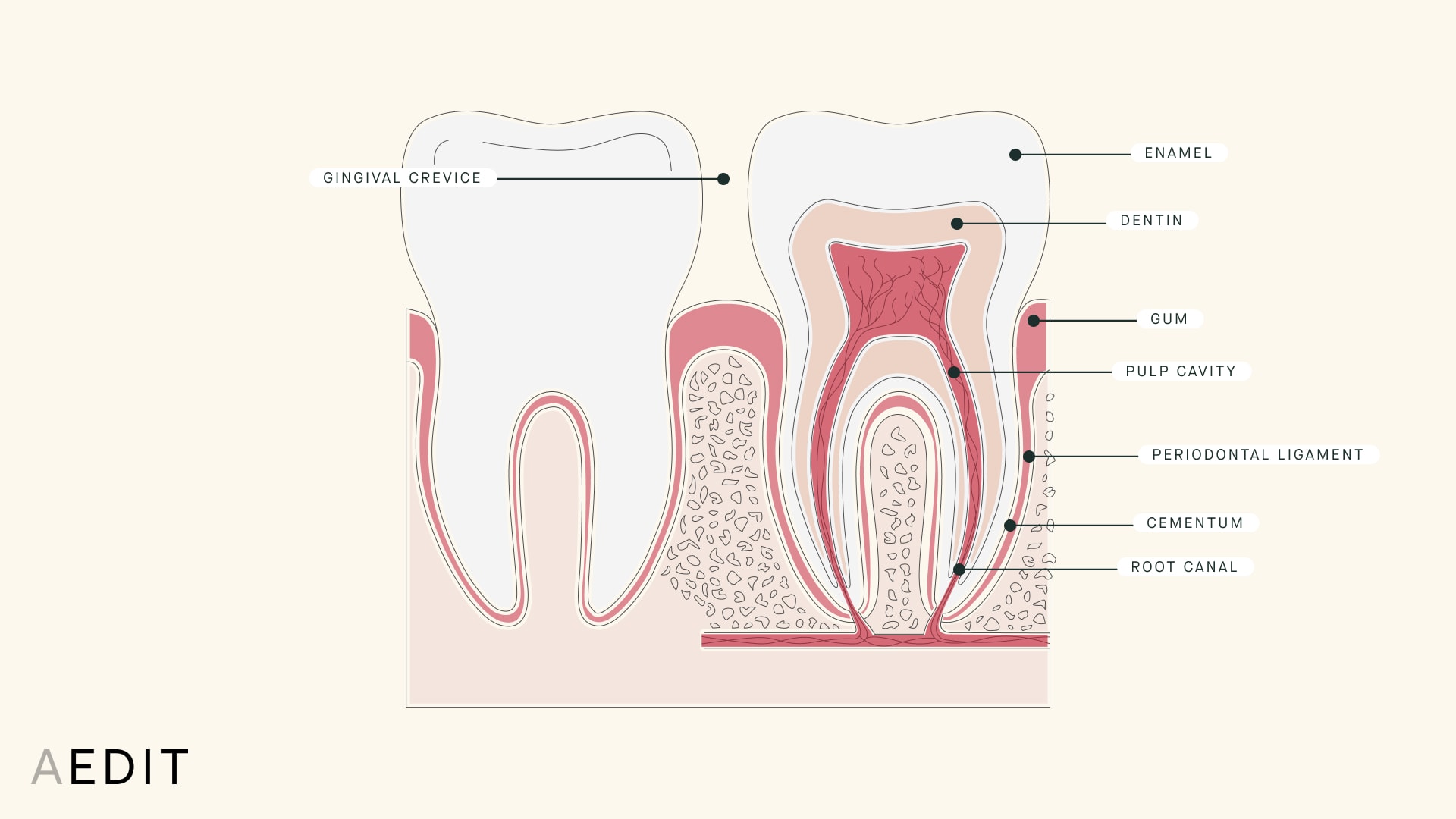
The Skinny
Average Recovery
0 days
Permanence
Permanent
Application
Temporary Wearable Device
Surgical
No
Cost
$1000 - $3500
AEDIT
Before & After Images by Provider












Before & After Images by Provider
Dental Veneers
The Specifics
What is a dental veneer?
A dental veneer is a thin coating of a material like porcelain or composite resin placed over the tooth for improved appearance and function. Veneers can correct stained, chipped, misshapen, worn, or abnormally spaced teeth. Veneers are expensive typically starting at $1,000 per tooth, however, they last 10 to 15 years with good care. Veneers can also assist with alleviating jaw pain and helping with bite alignment.
The Anatomy of the Tooth

What cosmetic concerns do dental veneers treat?
Who is the ideal candidate for dental veneers?
The ideal candidate for veneers is in good overall health, has sufficient natural tooth enamel, moderately straight teeth, does not grind or clench, and has a regular good oral hygiene routine. Veneers are not recommended for those with light enamel, those who grind their teeth, or those who need teeth straightening.
What is the average recovery associated with dental veneers?
There is typically no recovery time associated with a veneer procedure. Most patients resume all activities the same day with possible mild tooth sensitivity.
What are the potential side effects of dental veneers?
Possible side effects associated with a veneer procedure include temporary or permanent tooth sensitivity, infection, swelling, and pain.
What can someone expect from the results of dental veneers?
The results of a veneer procedure are a new smile with immediately noticeable improvements to the aesthetic of teeth. With proper care Veneers can last 10 to 15 years.
What is the average cost of dental veneers?
A veneer procedure can cost anywhere from $1,000 to $3,500 per tooth. The actual cost of a veneers is dependent upon location, board certified facial plastic surgeon, and length and involvement of the plastic surgery.
Pros
- Natural Looking Teeth
- Stain Resistant
- Long Lasting
- Durable
- Instant Results
Cons
- High Cost
- Increased Sensitivity
- Irreversible Procedure
Invasiveness Score
Invasiveness is graded based on factors such as anesthesia practices, incisions, and recovery notes common to this procedure.
What to Expect
Dental veneers cover stained, chipped, misshapen, worn, or abnormally spaced teeth. Here is a quick guide for what to expect before, during, and after veneers.
The Takeaway
Veneers are a minimally invasive, and natural appearing solution for improving the aesthetic of the natural teeth after they have become damaged, stained, or malformed. Veneers can also be used to improve bite alignment and alleviate jaw pain. Both porcelain veneers and composite resin dental veneers may last 10 to 15 years.




